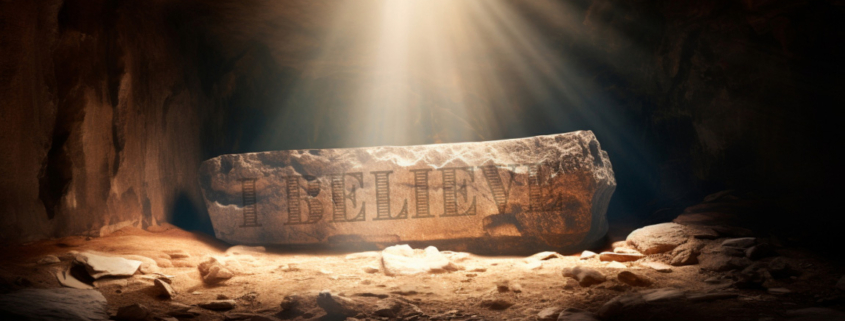What is the Small Catechism?
Chemistry— whew. My daughter’s high school chemistry textbook goes over 500 pages; her general chemistry college textbook spans over 1,000 pages. Even the study guide’s “condensed version” has over 350 pages.
Knowing God well, following his Son, and being sure about God’s gift of eternal life with him— those are more important than chemistry, but can seem even more complicated. The answers are in the Bible. My Bible has lots of notes to help me understand it, but the words and notes combine to fill over 2,000 pages. The “condensed version study guide?” (Cliff Notes, Spark Notes, Coles Notes, etc.) Over 450 pages.
Isn’t there a simpler way to learn, “What does this mean?”
Back in 1529, Martin Luther, a professor of Bible at a university in Germany, published the simplest, most practical and trustworthy handbook to Christian faith you can find. Luther called it his “Small Catechism.” (Catechism is a Greek word, originally meaning “teaching out loud.” More commonly, people use the word to mean a religious instruction book in the form of questions and answers.)
Think FAQ— frequently asked questions— brief (about 20 pages), down-to-earth and well organized. Luther meant his Small Catechism to be simple enough for average children to understand, and for their parents, especially fathers, to teach them. That’s why each section of the Small Catechism introduces a topic, then says something like: “As the head of the family should teach it in a simple way to his household.”
Luther wrote the Small Catechism after a tour of northern Germany that left him miserable: “The ordinary person, especially in the villages, knows absolutely nothing about the Christian faith, and unfortunately many pastors are completely unskilled and incompetent teachers. Yet supposedly they all bear the name Christian, are baptized, and receive the holy sacrament, even though they do not know the Lord’s Prayer, the Creed, or the Ten Commandments! As a result they live like simple cattle or irrational pigs” (preface to the Small Catechism).
Maybe you know the Lord’s Prayer; maybe not. Maybe you don’t know what a creed is, let alone can recite the main Christian creed and explain what it means. Either way, Luther’s Small Catechism can help you. It has simple questions and answers about:
- The Ten Commandments (what to do)
- The Apostles’ Creed (what to believe)
- The Lord’s Prayer (what to pray)
- Holy Baptism
- Holy Communion
The Way Christians and Christian churches serve others with God’s Good News (the “Keys and Confession”)
At the end come suggested daily prayers and a helpful summary of the duties that parents, children, spouses, etc. owe to others. Luther meant it to be practical for all ages. Read the Small Catechism
—Martin Luther










